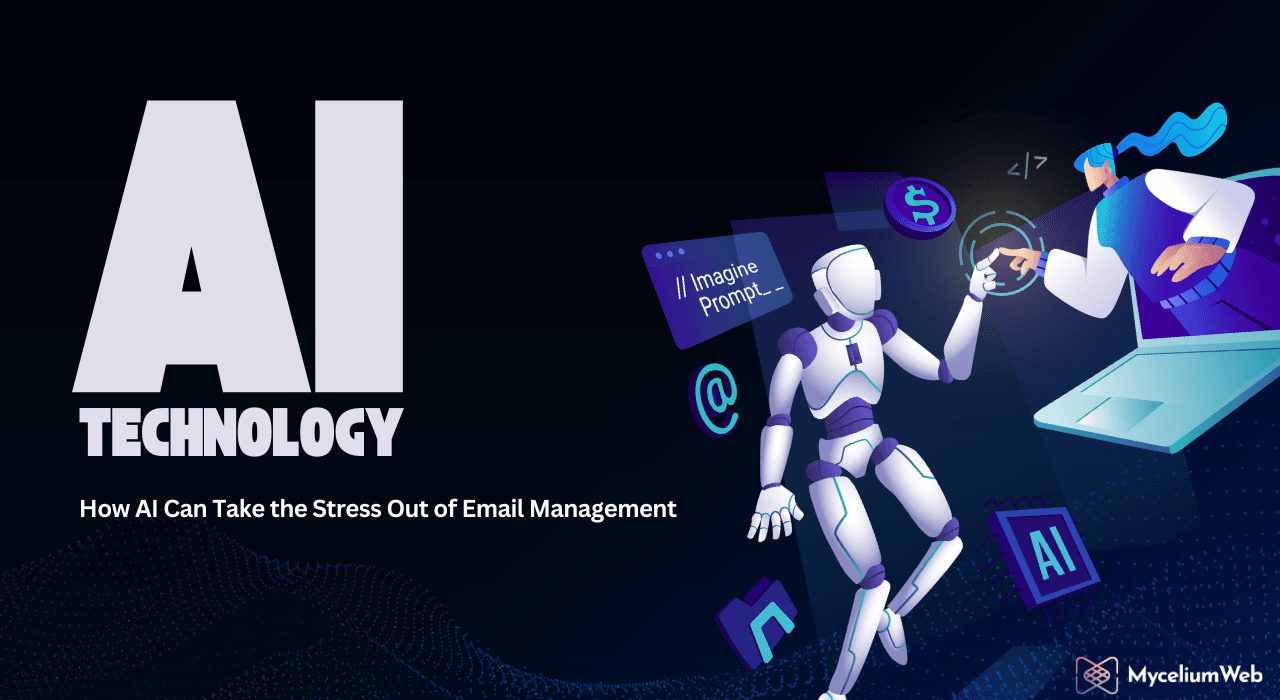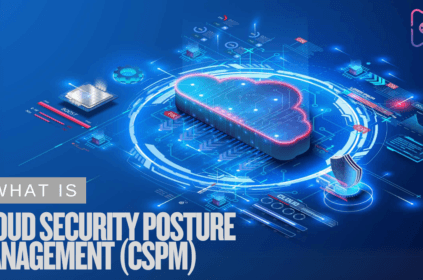AI is not here to replace your inbox hustle; it’s here to make it smarter and more manageable.
In the digital age, email remains a cornerstone of professional communication. Yet, with the rising volume of messages, managing email efficiently has become increasingly challenging. Many professionals find themselves buried in overflowing inboxes, which can be overwhelming and, ultimately, counterproductive. Fortunately, advancements in artificial intelligence (AI) are reshaping the way we handle emails, transforming our inboxes into streamlined productivity hubs. This blog dives into the ways AI is enhancing email management and explores the potential benefits, security considerations, and future possibilities of AI-driven email tools.
To explore how AI is transforming businesses across various industries, including email management, check out this insightful article on how AI is used in business.
The Need for Enhanced Email Management
A study by McKinsey found that employees spend an average of 28% of their workweek managing email. This means that even with a 40-hour workweek, nearly 11 hours are devoted to sorting, reading, and responding to emails—time that could be spent on more strategic, value-adding tasks.
The challenge lies in how much time is consumed by repetitive tasks and unimportant emails. For many professionals, the constant influx of messages not only interrupts focus but can also result in missed opportunities, forgotten tasks, and increased stress. This is where AI steps in, offering a smarter way to manage email.

How AI Transforms Email Management
AI-powered tools are making it easier than ever to manage email. They handle everything from filtering messages to generating insights on communication patterns. Here are some of the most powerful ways AI is transforming email management:
1. Smart Categorization and Prioritization
AI-driven email tools can analyze the content, sender, and recipient history to categorize and prioritize emails. Instead of manually sifting through emails, AI can categorize messages as “urgent,” “personal,” “promotions,” or “work-related.” This makes it easier for users to focus on what matters most and avoid getting distracted by less important messages.
One popular feature of AI-powered email tools is the ability to identify and prioritize messages from frequent contacts or those marked as high priority. For example, Gmail’s AI automatically filters emails into Primary, Social, and Promotions tabs, while Outlook uses “Focused Inbox” to prioritize messages likely to be relevant.
2. Automated Responses and Smart Replies
AI-driven tools can generate automated responses or suggest “smart replies” based on the content of the email. This feature is particularly useful for short, common responses that don’t require much customization. For instance, if someone asks, “Can we schedule a call tomorrow?” the AI might suggest quick replies like “Sure, what time works?” or “I’m available at 10 AM.”
These tools don’t just save time; they ensure that messages are responded to promptly, which can improve communication and build better client or colleague relationships.
3. Scheduling and Calendar Integration
Scheduling meetings and managing calendars is another time-consuming task that AI has simplified. Some AI tools can analyze email content to identify dates and times for scheduling, then cross-reference this information with your calendar to suggest suitable meeting slots. This saves the back-and-forth communication often involved in scheduling meetings and helps ensure no double-booking occurs.
Calendar integration, such as that seen in tools like Microsoft Outlook’s Cortana, takes it a step further by automating scheduling entirely—automatically adding meeting invitations to calendars, setting reminders, and even suggesting available time slots.
4. Email Summarization and Digest Reports
AI can also help by summarizing emails. For long email threads, AI can generate a concise summary, allowing users to catch up on essential points without reading every message. AI-based tools like Google’s Smart Compose also help users compose emails faster by offering word or phrase suggestions based on the email’s context.
Digest reports are another powerful feature, providing users with a daily or weekly summary of their email activity. These summaries often include statistics like the number of emails received, key messages that need attention, and the most contacted recipients. This helps users get a quick overview of their inbox and refocus on priorities.
5. Enhanced Spam and Phishing Detection
One of the most critical applications of AI in email management is improved spam and phishing detection. Modern spam filters use machine learning to analyze email patterns and detect suspicious messages more accurately. They can identify potentially harmful emails, such as those containing phishing attempts or malware, and flag them before they even reach the user’s inbox.
For instance, Gmail uses AI-driven spam detection to block 99.9% of spam and phishing emails, continually learning from user input to improve detection accuracy. This protects users and businesses from cybersecurity threats and provides peace of mind.
Benefits of AI-Driven Email Management
The advantages of AI-powered email tools extend beyond saving time; they also enhance productivity, reduce stress, and improve communication quality. Here’s a closer look at the benefits:
1. Time Savings and Increased Productivity
AI tools allow users to reduce time spent on repetitive tasks, freeing up time for more meaningful work. By automating tasks such as sorting, replying, and scheduling, users can focus on essential work without constantly being distracted by email.
2. Improved Response Time
With automated responses and prioritization, emails are less likely to fall through the cracks. Quick responses create a sense of reliability and professionalism, which can improve client satisfaction and team collaboration.
3. Better Communication Insights
AI-driven insights into communication habits can provide users with data on response times, most frequent contacts, and email patterns. These insights are particularly valuable for managers, as they reveal how their team spends time on email communication, which can help identify bottlenecks or inefficiencies.
4. Enhanced Security
Improved spam and phishing detection directly translates into better security. AI-driven filters protect users from falling victim to cyberattacks by identifying malicious emails before they reach inboxes.

Security and Privacy Concerns
While AI brings many benefits to email management, security and privacy are important considerations. Since AI tools process large amounts of personal data, including message content and sender information, it’s essential to choose solutions that adhere to strict data privacy standards. Here are some key concerns to keep in mind:
1. Data Privacy
Email management tools often need access to your email content to deliver advanced functionality. It’s essential to ensure that these tools use encryption and comply with data protection regulations like GDPR to safeguard sensitive information.
2. Potential for Over-Automation
While automation can be a significant benefit, over-reliance on AI can sometimes lead to impersonal communication. Automated responses, if not monitored, could lead to misunderstandings or even critical messages being missed. It’s essential to strike a balance between automation and personal engagement.
3. AI and Cybersecurity Risks
AI tools, if compromised, could potentially expose a significant amount of sensitive data. Users should opt for trusted platforms that regularly update their security protocols to prevent data breaches.
The Future of AI in Email Management
The future of email management with AI holds promise as these tools continue to advance. Here are some of the potential developments we can expect:
1. Context-Aware Email Filtering
Future AI tools could take email filtering to the next level by considering the broader context of messages. For example, instead of only sorting by topic, AI could prioritize emails based on the user’s current project or workload, creating a more dynamic and responsive inbox.
2. Cross-Platform AI Assistants
Imagine an AI that could manage communication across multiple platforms—email, messaging apps, and even social media. Such a tool could consolidate all communications, prioritize urgent matters, and schedule responses across platforms.
3. Emotional Intelligence in AI Responses
Advances in AI could lead to emotionally intelligent responses that detect the sentiment of an email and respond appropriately. This could be particularly useful for customer service, allowing for more empathetic and personalized responses.

Conclusion
AI-driven insights are transforming email management from a time-consuming chore into a streamlined, efficient process. From prioritizing messages to detecting security threats, AI is empowering professionals to work smarter, save time, and communicate more effectively. While there are considerations around privacy and security, choosing a trusted platform can mitigate these risks and allow users to fully harness the benefits of AI-powered email management.
As AI continues to advance, we can expect even more innovative solutions that enhance productivity, personalize communication, and integrate seamlessly into daily workflows. The future of email management is bright, and with AI on our side, our inboxes are in for a major upgrade.
The future of email management is undoubtedly driven by AI. By integrating these intelligent systems with tools like Google Workspace, you can take your productivity to the next level. Explore how to master Google Workspace and enhance your productivity.
At MyceliumWeb, we deliver personalized web and cloud solutions that are crafted to address the distinct needs of each business, ensuring secure digital infrastructure and optimized operations.
Our goal is to empower businesses to thrive in an ever-changing digital world, using tailored strategies that boost both efficiency and security.


















